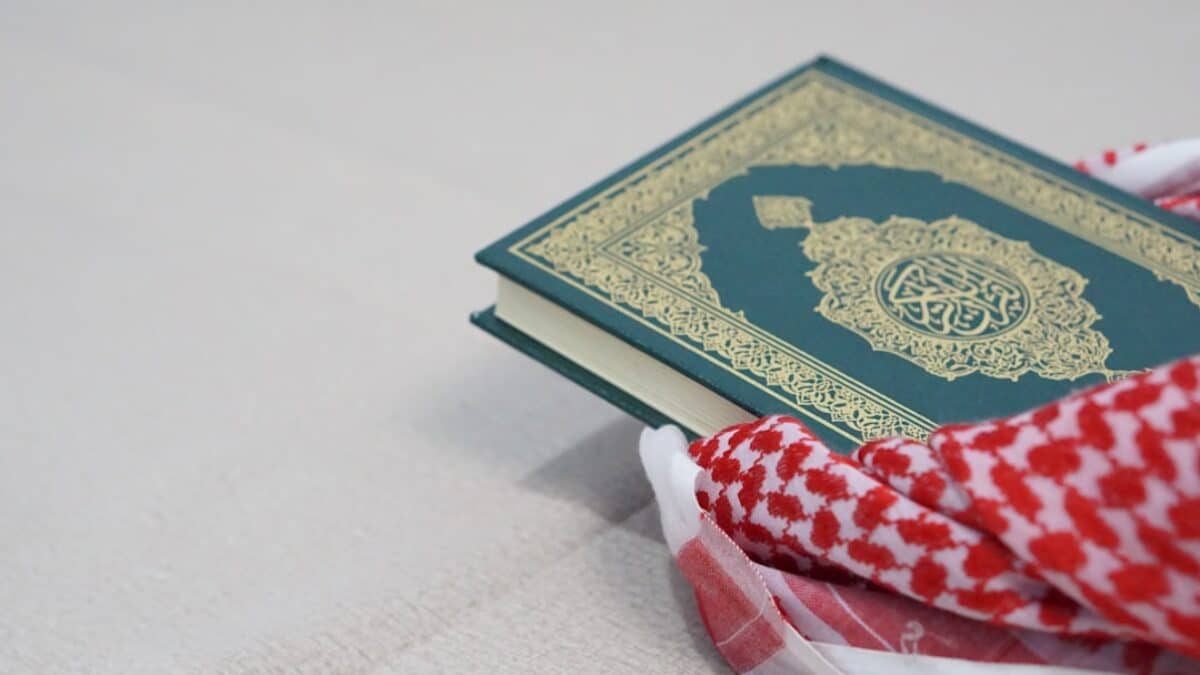Faith is the invisible thread that ties a believer to Allah Most High. While iman (faith) can rise and fall like waves on a shore, the Qur’an and Sunnah have gifted us divine formulas—duʿāʾ—that steady the heart and anchor the soul. This guide explores powerful duas to strengthen your faith, unpacks their meanings, and shows how to weave them into everyday life so that your iman becomes unshakable.
Understanding the Role of Duʿāʾ in Bolstering Iman
Duʿāʾ is more than “asking for stuff.” In Arabic it literally means “to call out.” When directed to Allah, it becomes the highest form of worship (ibādah). The Prophet ﷺ said, “Duʿāʾ is the essence of worship.” (Tirmidhī) This worship feeds the soul in three ways:
- Recognition of dependency: We remember we are ʿabīd—servants—at every breath.
- Renewal of covenant: Each supplication renews our pledge to worship Allah alone.
- Spiritual connection: The tongue articulates what the heart yearns for, deepening wilāyah (closeness to Allah).
Therefore, when we recite duas to strengthen faith, we are not merely requesting stronger belief; we are activating the spiritual mechanisms that deepen yaqī (certainty) and taqwā (God-consciousness).
Key Components of Faith-Strengthening Duas
1. Authenticity: Stick to the Qur’an and Sunnah
The safest and most powerful supplications are those taught by Allah in His Book or by His Messenger ﷺ. Beware of fabricated or weak narrations that promise exaggerated rewards. Each dua in this article is traced to sound sources (ṣaḥīḥ or ḥasan).
2. Presence of Heart (Ḥuḍūr al-Qalb)
The Prophet ﷺ warned, “Allah does not answer the duʿāʾ from a heedless heart.” (Tirmidhī) Practical tips for presence:
- Face the qiblah, raise your hands, and begin with taḥmīd and ṣalāh ʿalā an-Nabī.
- Pause for 10–15 seconds of mindful breathing to detach from worldly distractions.
- Visualize Allah’s mercy descending while you speak to Him—because you are speaking to Him.
3. Comprehensive Themes in Faith-Building Duas
Most duas that fortify iman address at least three of the following:
- Tawḥīd – Oneness of Allah
- Risālah – Belief in the Prophet ﷺ
- Ākhirah – Certainty in the Afterlife
- Tawakkul – Reliance on Allah’s plan
- Ṣabr & Shukr – Patience and gratitude
Essential Duas for Unshakable Iman
1. The Master Dua of Prophet Ibrahim (as)
Arabic: Rabbanā lā tuzigh qulūbanā baʿda idh hadaytanā wa hab lanā milladunka raḥmah, innaka anta al-Wahhāb.
Translation: “Our Lord, let not our hearts deviate after You have guided us, and bestow upon us mercy from Yourself; surely You are the Bestower.” (Āl ʿImrā3:8)
Why it works: Ibrahim (as) asked for istiqāmah (steadfastness) after guidance, acknowledging that guidance can erode without divine protection.
- Frequency: After every farḍ prayer.
- Practical tip: Pair it with placing your right hand over your heart, feeling the words vibrate physically.
2. The Duʿāʾ of the Prophet ﷺ for Deepened Iman
Arabic: Allāhumma ya Muqalliba l-qulūb, thabbit qalbī ʿalā dīnik.
Translation: “O Turner of hearts, make my heart firm upon Your religion.” (Tirmidhī ṣaḥīḥ)
Scenario: Recite when you feel spiritually numb, after a sin, or when doubts creep in.
3. Duʿāʾ for Certainty (Yaqī)
Arabic: Allāhumma inni aʿūdhu bika min ẓulmati l-ʿamā wal-juhūd.
Translation: “O Allah, I seek refuge in You from the darkness of ignorance and denial.”
Composed by early scholars from the dhikr of the Prophet ﷺ, this dua counters shubuhāt (misconceptions) that cloud faith.
4. Seeking Allah’s Love and the Love of the Righteous
Arabic: Allāhumma inni as’aluka ḥubbaka wa ḥubba man yuḥibbuka wa ʿamalan yuballighunī ḥubbak.
Translation: “O Allah, I ask You for Your love, the love of those who love You, and deeds that will cause me to attain Your love.” (Tirmidhī)
Love is the engine of iman; when love grows, obedience follows effortlessly.
5. Duʿāʾ for Patience During Trials
Arabic: Rabbanā afrigh ʿalaynā ṣabran wa thabbit aqdamanā wansurnā ʿalā l-qawmi l-kāfirī.
Translation: “Our Lord, pour upon us patience and plant our feet firmly and help us against the disbelieving people.” (Al-Baqarah 2:250)
Trials either erode or polish iman. This dua asks Allah to turn every hardship into a polisher for our souls.
Benefits and Importance of Reciting these Duas Regularly
| Benefit | Spiritual Mechanism | Real-Life Impact |
|---|---|---|
| Protection from fitnah (trials) | Shield of dhikr repels Satanic whispers | Less anxiety over trending ideologies |
| Increased khushūʿ in ṣalāh | Heart remembers Allah throughout the day | Improved focus and longer sujūd |
| Enhanced taqwā | Regular awareness of Allah’s presence | Natural avoidance of doubtful earnings |
| Emotional resilience | Internalizes qadar and divine wisdom | Less frustration in traffic, exams, or job loss |
Practical Applications: Making Duas Part of Your Daily Routine
Morning & Evening Adhkar Framework
The Prophet ﷺ said, “Whoever says in the morning and evening: ‘Subḥānallāh wa bi-ḥamdih…’ one hundred times, no one will bring better than him on the Day of Judgment except one who said the same or more.” (Muslim)
Insert one of the iman-boosting duas into your morning adhkar:
- After Fajr prayer, sit on your prayer mat facing the qiblah.
- Recite istighfār 3–5 times.
- Recite Ibrahim’s dua (Āl ʿImrā3:8) once.
- Visualize your heart locked onto guidance like a GPS with a divine signal.
Micro-Duas Throughout the Day
- When unlocking your phone: Say “Allāhumma thabbit qalbī ʿalā dīnik.”
- While commuting: Listen to a recorded recitation of Surah Al-Mu’minū(the Believers) and follow with the dua for yaqī.
- Before sleep: Recite Ayat al-Kursī, then the dua for Allah’s love (hadith in Tirmidhī).
Weekly Family Halaqah
Choose one dua every Friday night. Read its Arabic, translation, tafsīr, and a story of its impact on the Salaf. Children internalize faith through narrative; adults through meaning. End with collective dua.
Common Mistakes and How to Fix Them
| Mistake | Correction | Quick Tip |
|---|---|---|
| Speed-reading without understanding | Pause after each phrase and imagine meaning | Use a sticky note with key words |
| Waiting for “perfect” concentration | Begin anyway; khushūʿ grows with practice | Two-minute timer rule |
| Only dua, no action | Pair each dua with a deed (charity, Qur’an recitation) | “Dua + 1 good deed” journal |
Frequently Asked Questions
What is the best time to recite these iman-boosting duas?
The last third of the night (tahajjud) is prime time because Allah descends and answers, but each moment has its own virtue:
- After obligatory prayers: Angels say “āmin” to your dua.
- Between adhāand iqāmah: An overlooked window.
- While fasting: Especially before iftār.
The key is consistency. Ten mindful duas daily outrank a hundred once a month.
Can women recite these duas during menstruation?
Yes, absolutely. Menstruation only restricts ritual prayer (ṣalāh) and touching the Qur’an without a barrier. Remembrance and dua remain open channels. In fact, moments of physical discomfort can be transformed into spiritual altitude when used for heartfelt duas.
How do I know if my dua is being answered?
Imam Ibn al-Qayyim lists three forms of response:
Receiving exactly what you
























Post Comment